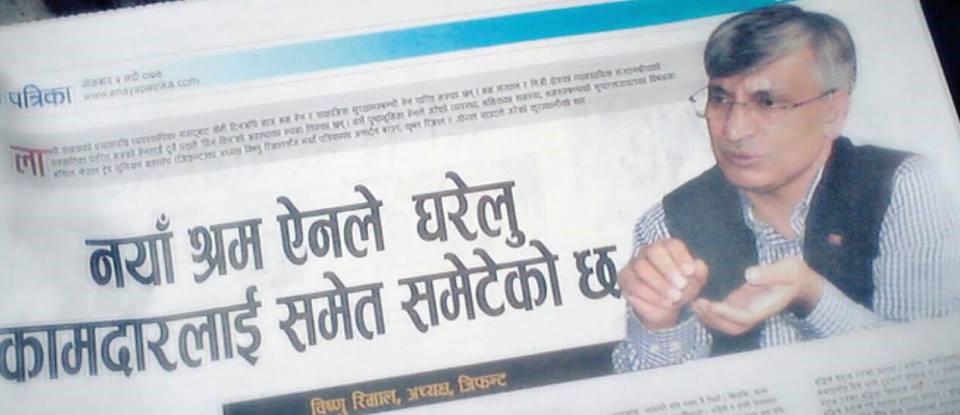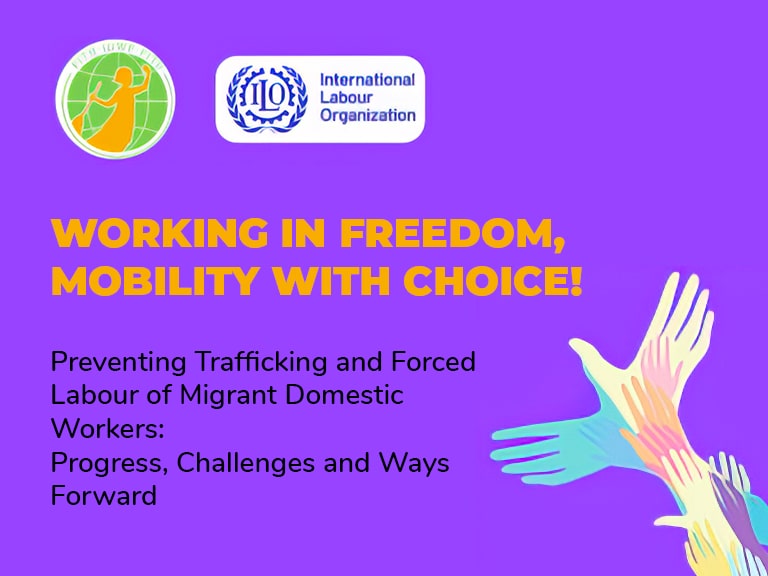- This event has passed.
In Nepal, domestic workers are included in newly adopted labor act
The New Labor Act was adopted by the parliament on August 13. HUN, an affiliated in Nepal, has put enormous effort to lobby for it, together with its union center, GEFONT. This law covers all of workers who work at least one hour, so domestic workers, even part time basis, are included in new labor Act.
Details
Domestic worker is included in newly adopted Labor Act in Nepal.
The New Labor Act was adopted by the parliament on August 13. HUN, an affiliated in Nepal, has put enormous effort to lobby for it, together with its union center, GEFONT.
This law covers all of workers who work at least one hour, so domestic workers, even part time basis, are included in new labor Act. Even if it is a remarkable achievement, there are still long way for domestic workers to go.
In terms of social security, Social security Act applies only to formal workers. HUN has been demanding for social security for domestic workers for a decade. Now the new law came out but it is only for those who make contribution which is one percent of their basic salary. Domestic workers are left out because there is no mechanism for domestic workers to contribute.
To make sure the coverage of Social security Act for domestic workers, HUN will further demand newly elected member of government for starting a process of registering domestic workers in local government level, and bargain for minimum wage for domestic workers, and then domestic workers will contribute for social security. Therefore, there are a lot of things to do in the future and HUN is ready for it.

Following is the major features of new Labor Act:
1. Proposed law covers entire world of work including domestic worker.
2. This law has been agreed as the basic law; all employees will get wage and benefits not less than this law proposes. Nobody shall make agreement breaching this law.
3. All forms of exploitative labour practices including child and forced labour is banned. Employers are restricted to make any agreement banning person to joining the union.
4. Employment structure is categorized as casual work, time-bound work, task based work and regular work. Whatever structure is made in employment contract- there will be no discrimination in wage and benefits.
5. Basic Social protection measures such as gratuity, accidental benefits, sickness benefits, Medicare including workers saving– the provident funds is payable from the day one of employment. Trainee and part time workers also covered.
6. Outsource job is made more responsible, if the non-licensee recruiting agencies supply labour to any workplace; principle employer is responsible to meet all benefits.
7. There is a provision for make work appraisal transparent.
8. Without valid reasons and fulfilling lawful obligation, no one would be fired by the employment. In case of unlawful firing, it is provisioned of case against such employer. Union leaders are protected during retrenchment.
9. Retiring age is increased to 58 years from 55.
10. Women workers are protected better compare to previous law –
- a. There will be transport facilities if women are working in night shift
- b. There will 98 days of maternity protection leave, 60 days paid
- c. In case of miscarriage of 7 months and above pregnancy, benefit is provided as of maternity
- d. There will be no discrimination based on gender
- e. A strong disciplinary action proposed against harassment
11. Social dialogue
- a. Every 2 two years of interval, minimum wage is reviewed.
- b. A provision of common bargaining committee in agreement of multi union in the enterprises is added besides right to take part in CBA by the authentic union.
- c. 21 days given for bilateral negotiation and 30 days given for labor office to conciliate the collective dispute. In case, the agreement is not signed during that time, union may call for strike by giving 30 days notice except essential service or state of emergency or dispute in EPZ or parties agreed for arbitration or government refer the case to arbitration. It is given much emphasis on arbitration in labour dispute by providing right to government to refer the case to arbitration. However, such arbitration award may be challenge within 5 working days from the date of award.
- d. The collective agreement is valid as equivalent to law till 2 year and remain valid if it is not changed by next CBA.
- e. Strike action should not be prohibited without making alternative mechanism for collective dispute settlement mechanism.
- f. There is no agreement on sectorial central bargaining though Nepal already ratified ILO convention 98.
12. Leave facilities and Paid public holidays are increased and May Day and 8 March included.
13. Existing factory inspection system is changed in widen to labour inspection system.
14. Mechanism such as enforcement of agreement and judgments is included.
15. Few flexible provisions of the Act may invite negative consequences if union became less smart:
- a. Contractual, time-bound categories of employment may escalate, though workers of all categories are entitled to enjoy all benefits and social protection stuffs
- b. Period of trainees may extend to 1 years, however there will be no difference in entitlement
- c. Retrenchment can be done in consultation of union, here union need to be more responsible
- d. Everyone entitle to get minimum facilities enshrine in the law, but more than minimum can be reduced through CBA- here union needs to be more smart
- e. There is fixed list for termination of the workers, however, it can be added through collective CBA. If union plays foul, there will negative consequences.
Source: HUN and GEFONT







